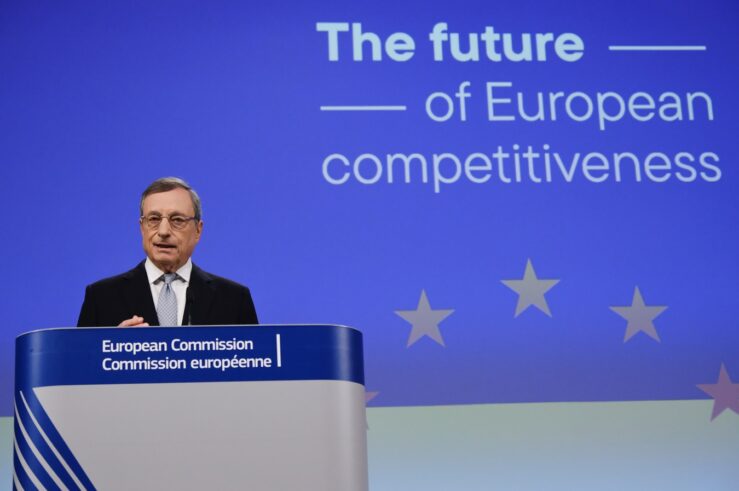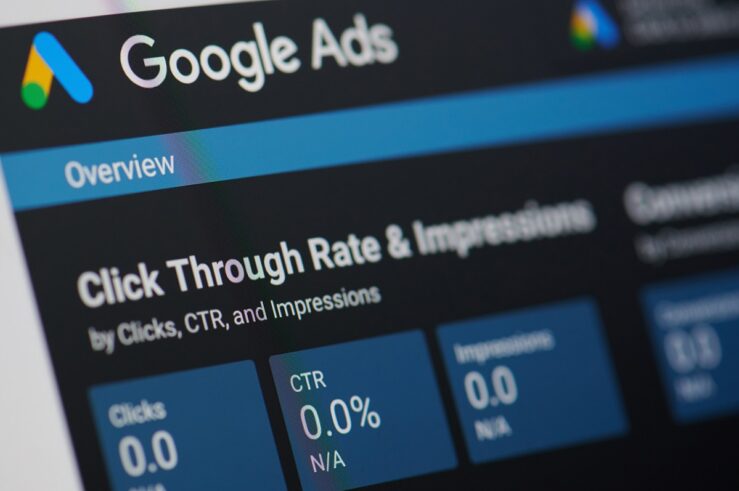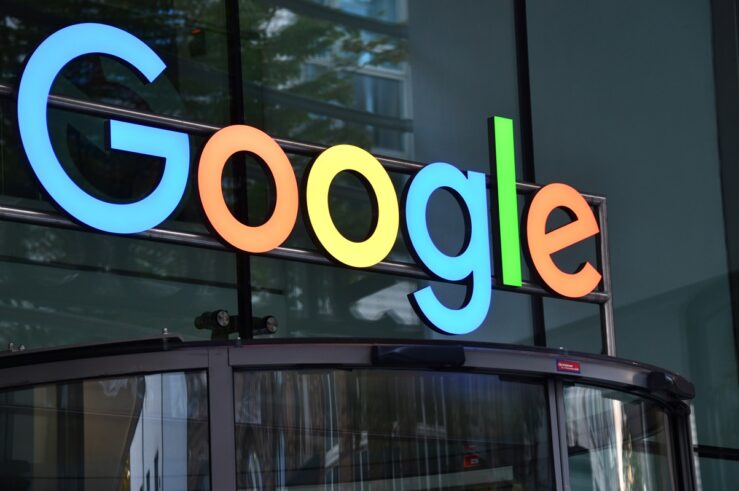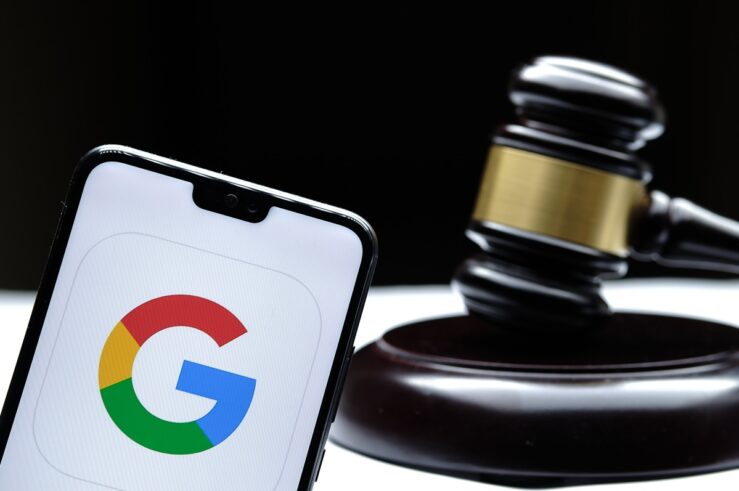Showing archive for: “Platforms”
Preemptive Digital-Platform Rules Are Not Good Competition Policy, But They Were Never Meant to Be
Inspired by the European Union’s Digital Markets Act (DMA), a growing number of jurisdictions around the globe either have adopted or are considering adopting frameworks of preemptive digital-competition rules (DCRs) that would more closely regulate the business models of such platforms as Google’s search engine and Amazon’s e-commerce business. The Turkish government may soon join ... Preemptive Digital-Platform Rules Are Not Good Competition Policy, But They Were Never Meant to Be
Prudence and Precedent Counsel Modest Remedies in Google Search Case
Later this fall, the U.S. District Court for the District of Columbia will hold hearings to determine the proper remedy in the Google search case. Among other options, the court could restrict Google’s ability to sign exclusive distribution contracts, force it to share data with competitors, or even break Google apart into two or more ... Prudence and Precedent Counsel Modest Remedies in Google Search Case
Age-Verification Mandates: Constitutional Concerns and Policy Pitfalls
In a recent post, my International Center for Law & Economics (ICLE) colleague Ben Sperry explored the First Amendment implications of Rep. John James’ (R-Mich.) proposal to mandate app stores either verify users’ ages and or obtain parental consent for users who are minors. While that analysis provided a solid foundation for understanding the constitutional ... Age-Verification Mandates: Constitutional Concerns and Policy Pitfalls
The Law & Economics of Online Age Verification and Parental Consent: App Store Edition
Roughly this time last year, I was writing an International Center for Law & Economics (ICLE) issue brief that considered online age-verification and parental-consent laws from a law & economics perspective. The resulting paper, “A Coasean Analysis of Online Age-Verification and Parental-Consent Regimes,” found that the major U.S. Supreme Court cases on age verification and ... The Law & Economics of Online Age Verification and Parental Consent: App Store Edition
Draghi Report Highlights Why to Be Wary of the ‘Brussels Effect’
Everyone in Europe, and across the international competition-law sphere, seems to have their own interpretation these days of former Italian Prime Minister and European Central Bank President Mario Draghi’s recent report “The Future of European Competitiveness” (a.k.a., the “Draghi report”). And, of course, those various interpretations, unsurprisingly, inevitably match the interpreter’s policy preferences. This is ... Draghi Report Highlights Why to Be Wary of the ‘Brussels Effect’
Lessons from Korea’s Roller-Coaster Ride Toward Platform (Non)Regulation
The Korea Fair Trade Commission (KFTC), the nation’s competition authority, announced Sept. 9 that it had abandoned plans for comprehensive platform regulation modeled after the European Union’s Digital Markets Act (DMA) or Section 19a of Germany’s Competition Act. The proposed Korean regulation would have involved an ex-ante designation process, alongside stringent prohibitions. The KFTC noted ... Lessons from Korea’s Roller-Coaster Ride Toward Platform (Non)Regulation
Justice Department’s Google Adtech Antitrust Suit Does Not Add Up
The trial of the U.S. Justice Department’s (DOJ) “adtech” antitrust lawsuit against Google kicked off Sept. 9 in U.S. District Court in Alexandria, Virginia. In a nutshell, the DOJ (joined by 17 states) argues that Google illegally monopolized key digital-advertising technologies through a variety of anticompetitive tactics. But the DOJ will find it difficult to ... Justice Department’s Google Adtech Antitrust Suit Does Not Add Up
Between a TikTok and a Hard Place: Products Liability, Section 230, and the First Amendment
With the 3rd U.S. Circuit Court of Appeals’ recent decision in Anderson v. TikTok, it’s time to revisit the interplay between the First Amendment’s right to editorial discretion, Section 230 immunity, and children’s online safety in the context of algorithms. As has been noted many times, the use of algorithmic recommendations is ubiquitous online. And ... Between a TikTok and a Hard Place: Products Liability, Section 230, and the First Amendment
The View from Japan: A TOTM Q&A with Sayako Takizawa
Sayako, could you please tell us a bit about your background and area of specialization? I’m a professor at the University of Tokyo, teaching Japanese competition law and policy. How did you become interested in competition law and digital-competition regulation? I’ve been interested in the dynamics and history surrounding the regulation of freedom of trade. ... The View from Japan: A TOTM Q&A with Sayako Takizawa
Does NetChoice v Bonta Mean Curtains for KOSA?
To butcher a Winston Churchill quote, it’s not yet clear if this is the beginning of the end, or just the end of the beginning, for children’s online-safety bills. Such legislation has been all the rage in recent years, earning bipartisan support at both the federal and state level. A version of the Kids Online ... Does NetChoice v Bonta Mean Curtains for KOSA?
Google Monopolization Ruling May Not Hold Up On Appeal
In an Aug. 5 order, the U.S. District Court for the District of Columbia held that Google engaged in illegal monopolization of internet “general search services” and “general text search advertising.” This decision, dubbed “an historic win for the American people” by U.S. Attorney General Merrick Garland, may face tough sledding on appeal. The very ... Google Monopolization Ruling May Not Hold Up On Appeal
Judge Mehta Got It Wrong in the Google Case
U.S. District Court Judge Amit Mehta ruled in an Aug. 5 order that Google violated antitrust law by improperly maintaining a monopoly. The case focused on “general search engines” (GSEs) used for internet search, and the impropriety was the manner through which Google secured distribution in partnering with internet-browser developers, mobile-device manufacturers, and wireless carriers. ... Judge Mehta Got It Wrong in the Google Case
















